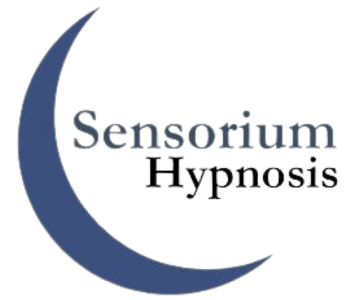How do you spend your time and with whom? Where do you plant your bottom before and after work? How about the weekends? If you are retired, what kind of routine or schedule do you keep that keeps you connected and energized? What rituals do you engage in daily or habitually that unnecessarily waste time, mental energy, and/or physical energy?
All this impacts what goes on (or what doesn’t go on) in your head.
Do you have a list of excuses – lack of time, money, energy, etc. – to avoid taking full responsibility for achieving your goals or desired outcome? Let’s be honest with ourselves – we are all guilty of this at times.
Excuses come from attitudes, beliefs, and perceptions – and are largely to blame for our negative inner dialogue that in turn feeds our less enlightened choices and behavior.
Let’s take this train a little further. Are there aspects of your life that feel unsatisfying, uninspiring, or even soul sucking? Career? Romantic partnership? Friendships? Family relationships? Health and lifestyle? Are you displeased with how you handle certain people, situations, conflicts, challenges, or adversity?
If you answered YES to this last question, this is even further evidence that there are mental/emotional pathogens or infectious agents in your life that are inhibiting healthy thought patterns and negatively impacting behaviors.
Here’s the interesting truth about negative self-talk: we may not be able to articulate – word for word – exactly what our head is telling us, but we can certainly identify some of the collateral damage. This can take many forms: important things that never seem to get done or are avoided completely; the uninspiring sameness in our lifestyles or stagnant energy; the way we are constantly busy, but never satiated or deeply connected to others; or never productive enough to feel a sense of accomplishment.
Negative self-talk can create lower frequency patterns such as undisciplined spending; overcrowded calendars; mindless uninspired activities with people we don’t enjoy; mind numbing activities like web surfing, gaming, social media binging – you get the point. Negative self-talk can also discourage us from communicating honestly, setting boundaries, or leaving enough resources and reserves for our own self-care.
We are by nature easily distracted by the minutiae and trivial nonsense of life and what’s more maddening is that we often lack the self-discipline or self-awareness to peel ourselves away from these unnecessary distractions. Let’s face it, it’s much easier to focus on everything and everyone else than it is to focus on the things that really matter. This is because the things that matter take a higher level of effort, personal responsibility, and consistency.
Here’s some ideas for addressing the insidious impact of negative self-talk:
- Be mindful of how you spend your leisure time. Whether you are attentively listening, or using it as background noise, too much mainstream news, especially at the front end or back end of our day can be emotionally/mentally taxiing. When we carry this energy into our day or into our bed, it disturbs our inner peace and calmness. Light, happy music; the sounds of nature or the laughter of a fun friend on the other end of the phone – all these things are so much more productive for our mental state.
- Save your time and energy for emotionally grounded friends and family who are happy, compassionate, emotional resilient, and spiritually wise. When you feel obligated to spend time with energy vampires, fulfill your commitments and then balance it out with something or someone who makes you feel calm and light. Conspiracy theorists, negative/angry people, victims who look through the lens of scarcity and disparity are draining to our minds, bodies, and souls.
- Quit solving everyone else’s problems. This tendency often represents our own unresolved issues – lack of self-care/self-love, fear of isolation/ abandonment/rejection or of becoming obsolete, avoidance of conflict/honest communication, etc. Next time you are tempted to rescue the same person repeatedly, take a deeper look inward to discover what beliefs and perceptions may be driving this need.
- Eliminate the things that create feelings of resentment or find the silver lining and a more positive perspective. Allowing lower frequency energies to fester is harming your spirit, draining your enthusiasm, and pulling your mental focus from more worthy endeavors.
- Infuse balance into your life. Too much activity – like needing constant socialization, noise, mental stimulation, movement, etc. – puts our minds/bodies/souls in overdrive and overload. I find this is often the pattern of those trying to lose weight without experiencing any long-term success. This is because they’ve normalized a chaotic life, unnecessarily putting their body and mind into a state of “fight or flight.” Make room to breathe, slow down and rest. It’s okay to say “no, I’m going to sit this one out.” Conversely, too much solitude – like isolating ourselves from work/friends/neighbors for days at a time, etc. – dampens our motivation, inspiration, and creativity.
- Limit time on electronics – cell phone, iPad, laptop, etc. I am old enough to remember a time when these things didn’t exist and we knew our neighbors, traded recipes, learned instruments, and simply lost ourselves in the art and joy of play and the company of others. Go knock on a new neighbor’s door with flowers or a cake. Stroll down to an art show or farmer’s market and engage in conversation with an absolute stranger. We need more experiences, choices, and variety to experience the fullness of life and upper limits of ourselves in this earthly realm.
- Take classes or workshops on meditation, yoga, self-hypnosis, self-energy healing – or any other modality designed to help you engage the higher mind. These types of activities slow down the brain waves, release trauma and other blocks, reintegrate peace and calmness into the mind/body and may even expand your social circle with like-minded individuals.
Simply put – if you want to turn down the volume on negative self-talk – break out of your routine, get out of your house, and spend more time engaging in the world around you. Be intentional about how and with whom you spend your time. Also, never underestimate the power of spending quality time alone doing something fulfilling or restful. Life is not meant to be a spectator’s event and when we resign ourselves to this, we often live inside our head.
Being out in nature or other high frequency spaces reminds us of our spiritual/creative essence and adds more layers to our life experience – art galleries, bookstores, yoga studios, writing workshops, cooking classes, gardening shows, music festivals, farmer’s markets, horseback riding venues, campgrounds – the sky is the limit. Moreover, surrounding ourselves with high frequency souls who we respect and admire brings out the most authentic version of ourselves.
Click here to stay informed through my newsletter and receive a FREE MEDITATION TUTORIAL: https://mailchi.mp/32efe1131972/new-subscriber-meditation-video-offer
Check out my Self-Healing Video Series here: Watch Self-Healing Video Series to Release Trauma Online | Vimeo On Demand on Vimeo
What would you like to know about Hypnosis? Here’s some surprising facts: Four Common Myths about Hypnosis: Breaking through the Barriers of Resistance – Sensorium Hypnosis & Mediumship, LL
#SpiritualHealingforChildhoodTrauma #EmotionalSupportForChildhoodTrauma #DealingWithChildhoodTrauma #ChildhoodTraumaCounseling

